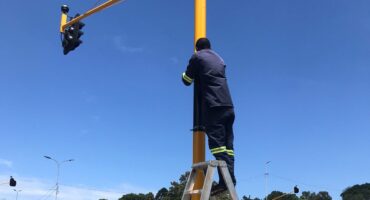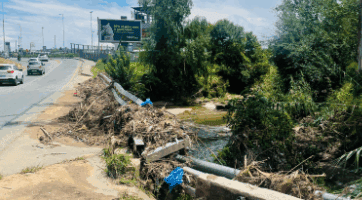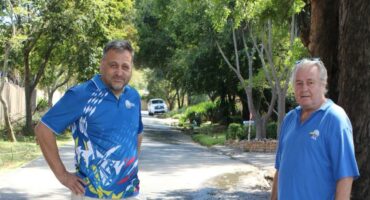World Health Organisation addresses coronavirus concerns in Africa
The World Health Organisation's regional director for Africa, Dr Rebecca Moeti, outlines some of the challenges they are faced with.

The World Health Organisation hosted a press briefing this afternoon (19 March) to discuss the spread of the coronavirus, particularly in Africa.
Dr Matshidiso Moeti, the regional director for the World Health Organization Africa (WHO) said that they are not sure why cases of coronavirus are only starting to appear in Africa now. They had been particularly concerned about the contact with China as it is a key economic partner in many African countries.
Moeti said that she thinks because China addressed the potential spread of the virus early on that the risk was reduced. As the virus spread to Europe and it became the epicentre, the virus began to spread more rapidly within Africa. She said that there are about 30 countries on the continent which have now experienced local spread at a rapid rate. Their goal now is to prevent this community spread.
Concerns over available testing kits
The number of test kits available is still a huge concern. She said that the director general of the WHO, Dr Tedros Ghebreyesus, has placed an emphasis on screening and a case-finding strategy to enable countries to know as early as possible where cases are and to prevent onward transmission.
She said that there are manufacturers working to develop test kits and they are keen to utilise these to tell very early on who is affected. “We are very encouraged by the countries who have put in place measures to test for the virus. In February, there were only two testing facilities, one in South Africa and one in Senegal. Now there are 40 countries [in Africa] who are able to test for coronavirus.”
Dr Owen Kaluwa, the WHO representative in South Africa added, “Test kits are a global problem but we are working to strengthen the capacity for testing. We have reached out to the private sector to see how they can assist. It is incredibly important to increase access to testing and putting in place the necessary measures to contain it.”
Lack of adequate health care facilities poses a risk
Another of the key concerns has been the number of ICU facilities and beds accessible. Moeti said they are currently collecting data on the capacity for critical care in African countries and they are determining the number of beds, doctors and nurses. While there are no official numbers, Moeti said she could confirm that there is a short supply.
She highlighted the possibility of importing field hospital facilities, brought in, set up and equipped with key items such as ventilators. “This is our biggest challenge but we are working very hard with our colleagues and governments.”
Some of the international funding which has been made available will be used to help adapt existing facilities while space is being made available.
Socio-economic conditions add to challenges
The socio-economic conditions in many countries around Africa are proving to be a significant challenge. Many people live in environments where social distancing is not possible and there is no access to running water. “Sometimes people live in a house where there isn’t an individual bedroom for each person or (access to) running water so handwashing is a challenge,” said Moeti.
They are recommending approaches that are adaptable to these challenges. “We are working on making hand sanitiser more accessible”
They also intend to find out different ways of social-distancing could be implemented in different situations.
Kaluwa said that informal settlements are a big concern, ” If we do get COVID-19 in the informal settlements it will become more difficult, so we are seeing what we can do to limit the spread in these areas.”
International community rallies together to prevent spread of coronavirus
At an international level, Moeti said that there has been a very strong response to respond to the outbreak. According to her, there are several donors who are keen to donate to those in low-resource settings.
She said that some key parties who have indicated their desire to assist include the World Bank, the African Development Bank and the European Union as well as some other countries. The World Bank has made up to $12 billion (equivalent to R208.41 billion) available for national responses. This would require individual governments to request to benefit from this fund.
Education is key
There has been a strong focus on educating people at a community level on the correct information about the coronavirus. Moeti said that there has been a lot of false news spread about the virus and through social media they are making sure people have access to the correct information. The key focuses include the need for good hygiene, social distancing and reporting symptoms to local health care providers.
While there are many concerns about the challenges Africa will face in dealing with the virus, Moeti said that the continent’s experience in dealing with other communicable diseases may be to its benefit.
Moeti said that some of the work WHO has been doing is based on their strategy for dealing with the Ebola outbreak. “The community platforms, learnings and mechanisms in place will help us.”
The decision to take strong preventative and precautionary measures to limit regular congregations of people is one that Moeti said will help contain the spread of the outbreak. “We are learning more and more as we see what has been done in different settings. What we understand is that the earlier, the better.”
Related Articles:
Safety tips to help keep your children safe during the #COVID-19 school holidays



